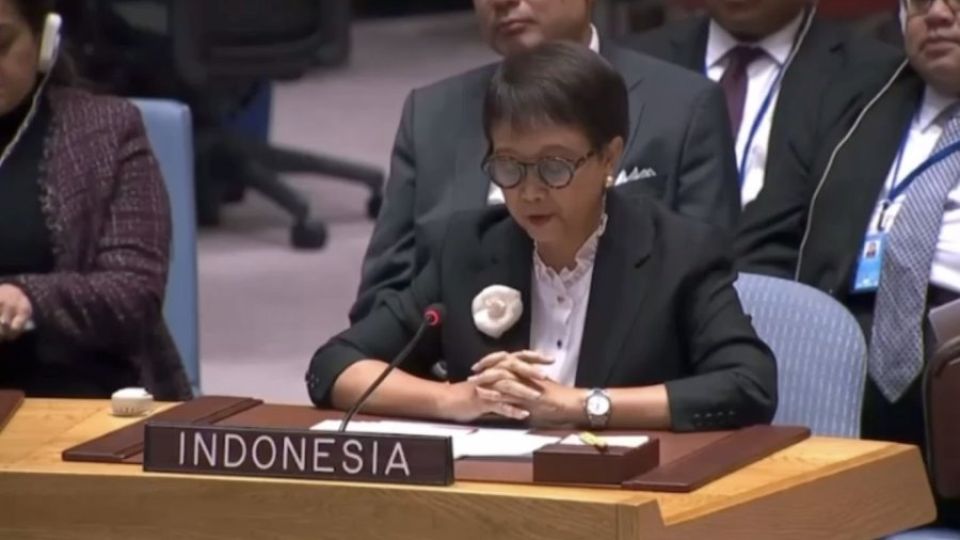April 12, 2023
JAKARTA – Expect Indonesia to continue adopting a “quiet diplomacy” approach for the rest of its ASEAN chairmanship this year, analysts have said amid growing frustration over the perceived lack of transparency surrounding urgent issues.
Indonesia is gearing up for its first ASEAN Summit this year, to be held in Labuan Bajo, East Nusa Tenggara in May, away from the prying eyes of keen observers.
Unlike the ubiquitous fanfare of last year’s Group of 20 presidency, Jakarta has opted for an understated approach to ASEAN this year, which is faced with a number of challenges that could undermine its credibility.
More than three months into its year-long chairmanship, the government has offered few updates on its regional security agenda, while remaining conspicuously silent on difficult issues such as the Myanmar coup crisis.
Last Wednesday, Foreign Minister Retno LP Marsudi told reporters that “everything is on the right track” vis-a-vis its diplomatic efforts, as urgent issues like South China Sea tensions and the Myanmar crisis continued to bubble.
With a reluctance to share progress on such issues, observers, activists and the general public have grown increasingly baffled, prompting them to call on Jakarta to increase its community involvement and engagement.
But a “self-effacing approach” may be Indonesia’s best bet when it comes to resolving some of the most pressing issues, some say, although there is no guarantee of its effectiveness until the outcomes make themselves known.
“At this stage, we can only give them the benefit of the doubt,” said Rizal Sukma, a senior fellow at the Centre for Strategic and International Studies (CSIS), on Sunday.
“The first test will be in May, during the ASEAN Summit.”
There was also a noticeably stark departure, others have pointed out, from Indonesia’s prominent voice during last year’s G20 presidency.
“The lack of communication has side-lined the general public’s involvement, which in turn reduces the public’s awareness and care for ASEAN. This is not ideal,” Gadjah Mada University international relations expert Dafri Agussalim told The Jakarta Post recently.
“It can also negatively affect foreign countries’ perception of Indonesia, including within ASEAN,” he suggested.
However, Dewi Fortuna Anwar, a senior researcher at the National Research and Innovation Agency (BRIN), acknowledged that any other “louder” approach could prove counterproductive in the ASEAN context.
“There is always this Indonesian fear of being perceived as a regional bully within ASEAN, as the biggest country in the region with some unpleasant history, like Konfrontasi with Malaysia,” she suggested, referring to the three-year armed conflict during the Cold War.
“This is precisely why it tends to be much more low profile in its ASEAN leadership style. Within the G20, however, Indonesia is a small fry among big fish. It had to be assertive, to be heard and to be seen,” Dewi told the Post.
Read also: The clock is ticking for ASEAN on MyanmarTrust with a deadline
For more than two years, the bloc has struggled to engage meaningfully with the Myanmar junta, who wrestled power from the democratically elected government over alleged election fraud, despite observations suggesting otherwise.
The United States-China rivalry has also intensified, as the two superpowers seek to expand their influence in the region.
Indonesia’s silence, especially with regard to Myanmar, was necessary to “build trust”, Minister Retno suggested last week. Since assuming the leadership, her ministry had set out to employ quiet diplomacy as its preferred strategy, to minimize the risk of jeopardizing sensitive negotiations.
The silence, apparently, includes any information on which parties in Myanmar Jakarta is engaging with.
“It seems Indonesia focuses on the facilitation of all-inclusive dialogues, to allow all stakeholders to find political settlements. […] Naturally, there is not much that we know, outside those who are involved directly, about what is going on, who the government talks to, what the chance of success is and so on,” Rizal explained.
Dewi echoed this sentiment, in that any noise from Jakarta prior to achieving results could prove detrimental to possible progress made thus far, despite a lack of information on whether progress has actually been made.
“In ASEAN, the process is as important as the outcome. Keeping ASEAN together, focusing on how the meetings are done, and the agenda agreed upon, are all equally crucial,” Dewi argued.
Yet Rizal, who called for the general public to trust Indonesia’s approach, warned that such trust would not be indefinite, and that results do matter.
“We can only praise [Indonesia] if the quiet diplomacy succeeds, or we can criticize it if it fails to produce results [at the upcoming summit]. If no progress can be reported, then we can [start to] be pessimistic,” he asserted.
Regarding Myanmar, attempts by previous ASEAN chairs had fallen short of expectations, due in part to an overtly critical posture that the junta feels entitled to ignore.
On Tuesday, local Myanmar media outlets reported at least 30 people had been killed in a central area of the country after the army launched an attack on an event being held by opponents of military rule.


